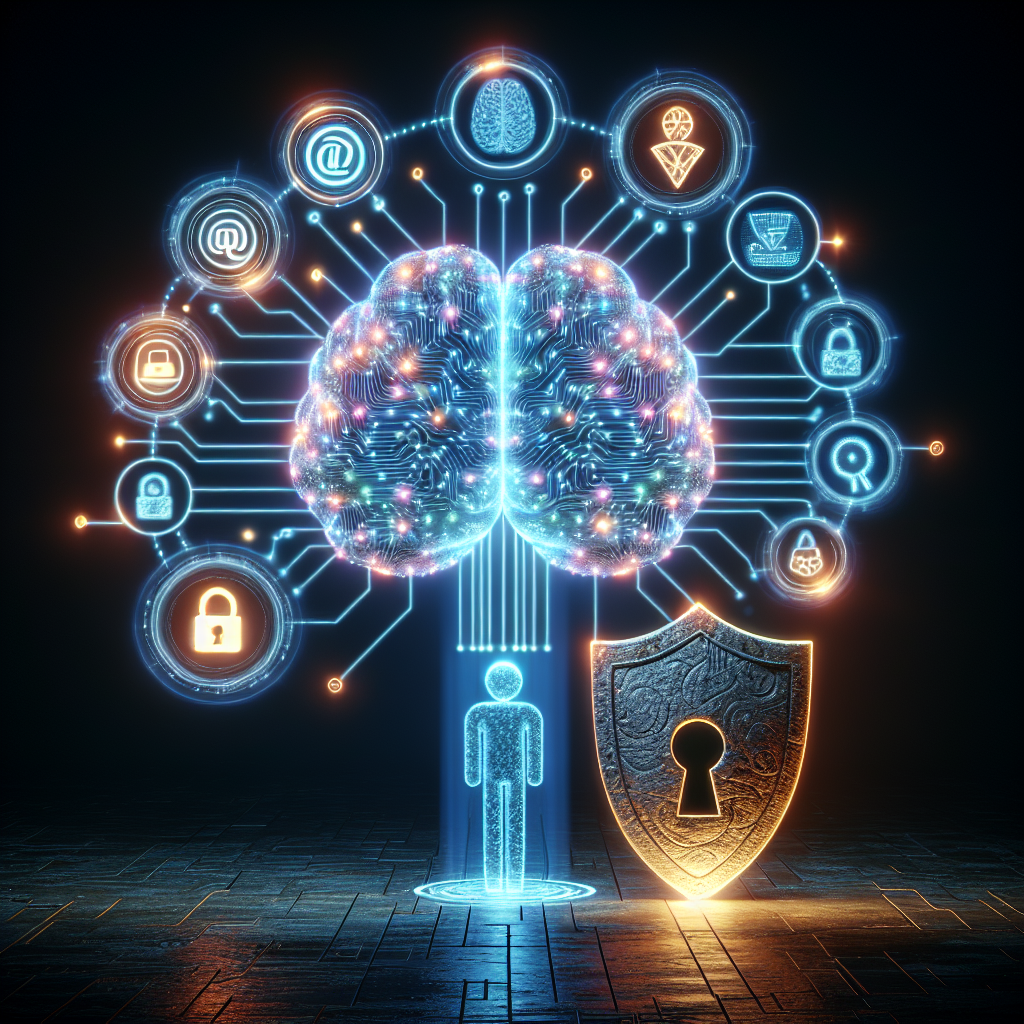The rapid advancement of artificial intelligence (AI) technology has raised concerns about its impact on privacy rights. As AI becomes more integrated into our daily lives, the amount of personal data being collected and analyzed is growing exponentially. This has led to questions about how AI is being used to track, monitor, and predict individuals’ behavior, and what safeguards are in place to protect privacy rights.
AI technology has the potential to greatly benefit society by automating tasks, improving efficiency, and enhancing decision-making processes. However, the collection and analysis of personal data by AI systems raise significant privacy concerns. AI algorithms are designed to learn and adapt over time, which means they can potentially uncover sensitive information about individuals without their knowledge or consent.
One of the main privacy issues with AI is the lack of transparency in how personal data is being used. Many AI systems operate as “black boxes,” making it difficult for individuals to understand how their data is being processed and for what purposes. This lack of transparency can lead to a lack of trust in AI systems and raise concerns about potential misuse of personal data.
Another privacy concern with AI is the risk of bias and discrimination in decision-making processes. AI algorithms are trained on historical data, which can contain biases that are then perpetuated in the AI system’s decisions. This can lead to discriminatory outcomes, such as in hiring practices, loan approvals, and criminal justice decisions. It is essential that AI systems are designed and implemented in a way that mitigates bias and ensures fair and transparent decision-making processes.
Furthermore, the increasing use of AI in surveillance technologies raises concerns about mass surveillance and infringement on individuals’ right to privacy. AI-powered surveillance systems can track individuals’ movements, behavior, and interactions in public spaces, leading to concerns about constant monitoring and potential abuse of power by authorities. It is crucial that privacy laws and regulations are updated to address the unique challenges posed by AI-powered surveillance technologies.
In response to these privacy concerns, there have been calls for greater regulation and oversight of AI technologies. Many countries have implemented data protection laws, such as the General Data Protection Regulation (GDPR) in the European Union, to protect individuals’ privacy rights and regulate the collection and processing of personal data. These laws require organizations to obtain consent for collecting personal data, provide transparency about how data is being used, and implement measures to protect data from unauthorized access or disclosure.
In addition to regulatory measures, there is a growing emphasis on ethical considerations in the development and deployment of AI technologies. Ethical guidelines, such as the AI Principles developed by the OECD and the AI Ethics Guidelines published by the European Commission, aim to promote responsible and ethical AI development that respects individuals’ privacy rights and upholds fundamental human rights.
Despite these efforts, the impact of AI on privacy rights remains a complex and evolving issue. As AI technology continues to advance, it is essential that policymakers, technologists, and society at large work together to address these challenges and ensure that AI is developed and used in a way that respects individuals’ privacy rights.
FAQs:
Q: What is the relationship between AI and privacy rights?
A: AI technology has the potential to greatly benefit society by automating tasks, improving efficiency, and enhancing decision-making processes. However, the collection and analysis of personal data by AI systems raise significant privacy concerns. AI algorithms are designed to learn and adapt over time, which means they can potentially uncover sensitive information about individuals without their knowledge or consent.
Q: How can AI impact privacy rights?
A: AI can impact privacy rights in various ways, including by collecting and analyzing personal data without individuals’ consent, perpetuating biases and discrimination in decision-making processes, and enabling mass surveillance and infringement on individuals’ right to privacy.
Q: What are some measures that can be taken to protect privacy rights in the age of AI?
A: Some measures that can be taken to protect privacy rights in the age of AI include implementing data protection laws, such as the GDPR, promoting ethical guidelines for AI development, and increasing transparency and accountability in how personal data is collected and used by AI systems.
Q: How can individuals protect their privacy rights in the age of AI?
A: Individuals can protect their privacy rights in the age of AI by being aware of how their personal data is being collected and used, exercising their rights to consent and access their data, and advocating for stronger privacy protections and regulations. It is also important to be cautious about sharing personal information online and to use privacy-enhancing tools and technologies when possible.

